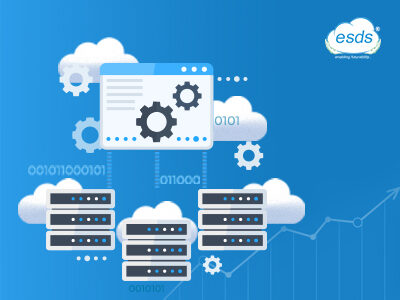How Can Managed Colocation Help Your Scaling Business?
For your growing business, you certainly need enough space to accommodate the ever-increasing IT infrastructure. Again, when it comes to growing infrastructure, it includes considerable space, cost, and an IT team to manage the IT infrastructure.
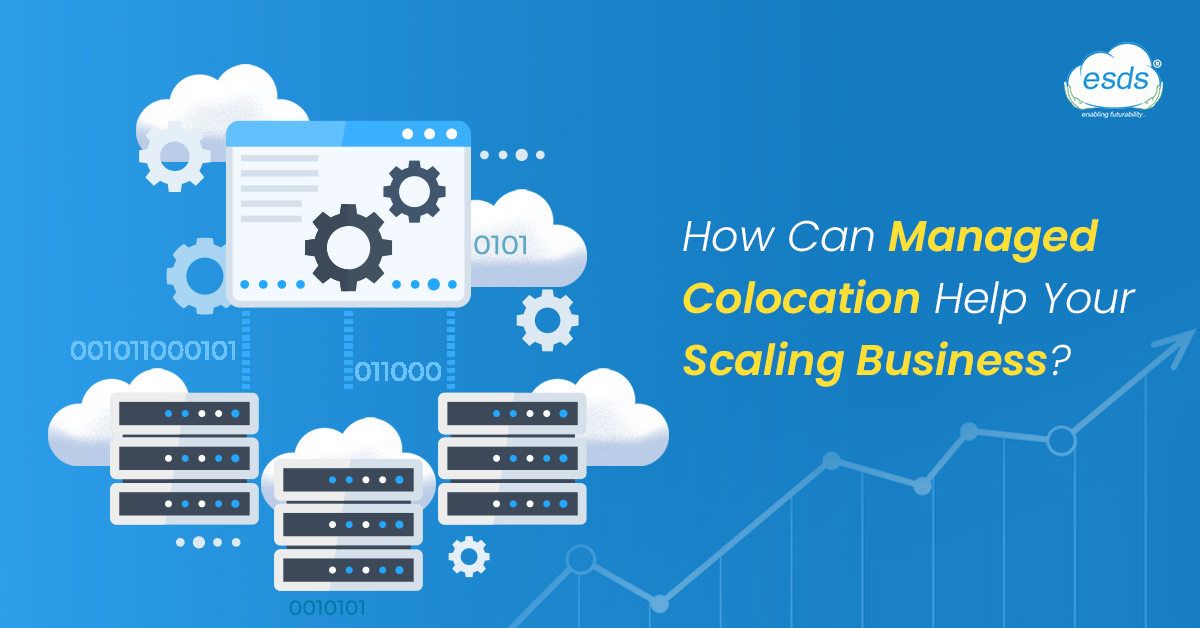
Your expanding business needs may not be cost-effective, but it certainly has solutions that would accommodate your scaling business requirements.
It is essential that your business infrastructure scales and performs at the right time when needed. Also, you need to know your long-term business needs and their impact on the overall business workflow.
There are several alternatives accessible for IT infrastructure. However, if you have a clear set of business objectives, are aware of the existing state of your organization’s IT infrastructure, and are ready to make a change to maximize deployment in the long run, managed colocation is just what you need. Nevertheless, what exactly is managed colocation, and why should it be preferred over on-premises or cloud-based solutions?
Colocation
Colocation is the provision in which a service provider offers space on its premises for an organization’s equipment and IT infrastructure.
It is an excellent alternative for companies that want to maintain control over their infrastructure but lack the physical room to house their equipment.
Managed Colocation
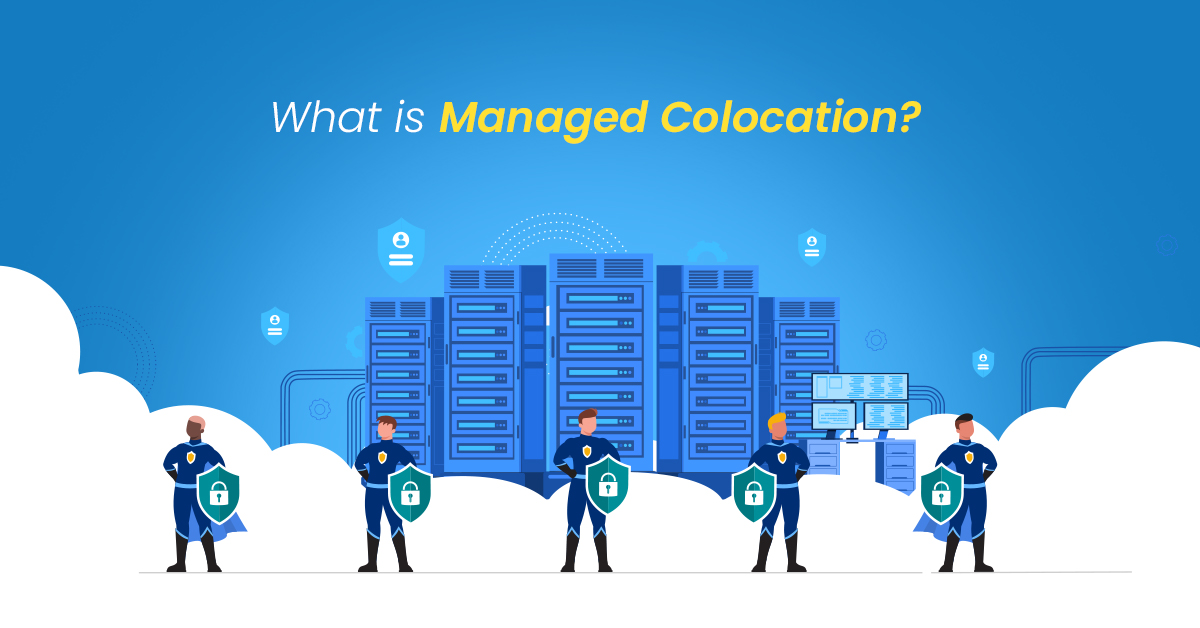
Managed colocation takes the colocation process a step further by managing the organization’s IT infrastructure and physically hosting it in the providers’ space.
Managed colocation is ideal for businesses willing to control their infrastructure but with a certain level of server management expertise.
In addition, smaller businesses do not have to spend on IT infra, equipment, and infra management cost, thus saving costs regarding physical space and the need to recruit expensive IT expertise.
Managed Colocation Services Offered by Service Provider?
A managed colocation provider like ESDS manages the server hardware and the operating system, applications, and databases, depending on the service level agreement (SLA). In addition, other managed services, such as security, backup, and storage, can be incorporated as part of the managed colocation solution.
Managed colocation services offering system administration, physical hardware help, proactive response monitoring, server backups, and network equipment management. Consider it 24/7 IT support at scale and distance. You profit by making the most of your existing hardware investments, supplementing them, and remaining on a CAPEX model while receiving full support from 24/7 skilled IT teams in excellent data centers.
You don’t just need servers, storage, a data center, and network access to keep your data online; you also need the people and knowledge to install, administer, and support those environments. Unfortunately, you may be devoting numerous hours to those duties while losing focus on your core business. Ultimately, managed colocation is the solution to all these issues.
Benefits of Managed Colocation
- Business Continuity
Your company’s data is protected against disasters such as fire and flooding in a data center owned by a service provider. Essentially, your provider is responsible for all aspects of your network.
- Security
Security measures that a data center can implement to protect against external physical attacks include 24/7 video surveillance, alarm monitoring, and authorized access.
- High Availability
Your service provider takes the required steps to ensure that your company’s data is always accessible. For example, backup services such as alternate power suppliers, batteries, or generators are available in the event of a power outage. In addition, most managed colocation providers like ESDS offer excellent network connectivity backed up by an SLA.
- Service and Support
Companies that own infrastructure and systems but lack technical support to administer them would benefit significantly from the management knowledge and maintenance support that a managed colocation provider offer. ESDS provides easy integration with their cloud platform for hybrid customer experience/requirements.
- Global Reach
Managed colocation is ideal for businesses that require access to multiple geolocations. Racks can be positioned anywhere in the world, which is very useful for enterprises that need to know where their data is physically located, as well as for meeting data protection requirements in certain countries.
To help you manage your infrastructure, ESDS offers Managed Colocation services, including
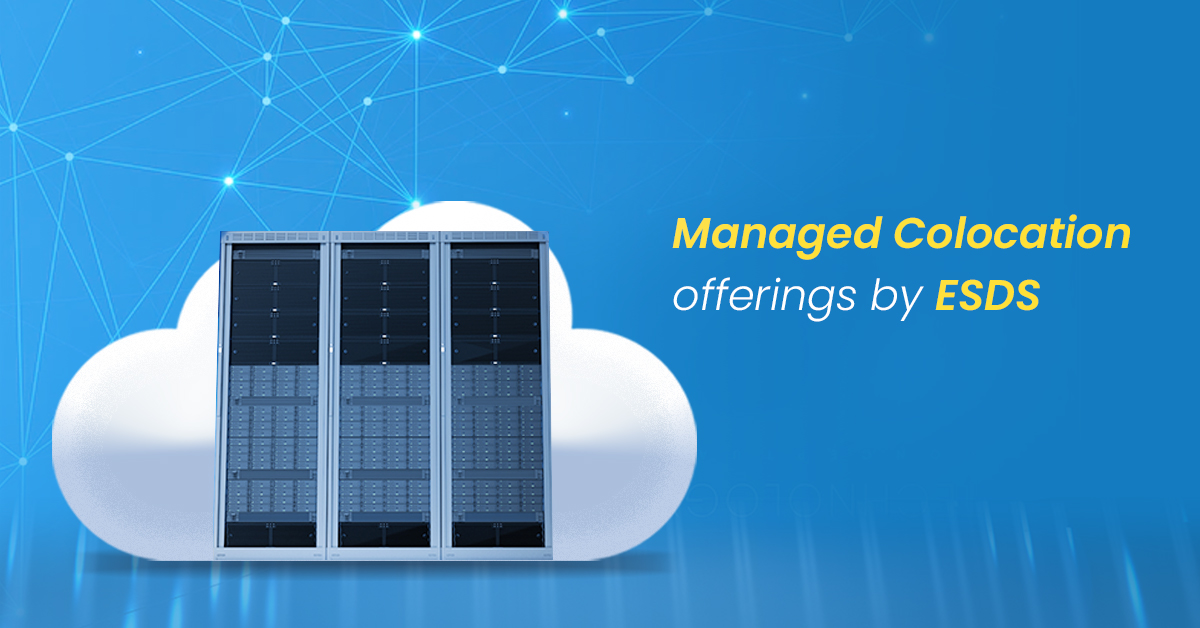
Infrastructure
- Initial Infra setup
- Tier 3 Indian Data Centers with N+1 Redundancy
- Storage facility with Quarter, Half, or Full Racks
- Easily Upgradeable Rack Space up to 42U
- Substation with High Power
- Direct expansion (DX) based Precision Air Conditioners (PAC) with PAC unit pumps
- FM200 fire suppression extinguishment system for Fire Safety
- Guest Operating System
- SAN/NFS Storage
- Network & Firewall
- Local/Remote-D2D/D2T Backups
Built-in Services
- 99.995% Uptime Guarantee
- Zero-cost Setups and Reboots
- Proactive Monitoring and Support
- High Data transfer
- Dedicated IPs
- Server Hardening
- 24x7x365 Exuberant Support
Exclusive Services – On-Demand
- Remote Controls of OS and hardware through KVM-IP or terminal access
- Prompt Back-Ups
- Dedicated Private Network
DR- Services
- DRP Planning/Assistance
- Complete DR Drills with Reports
- Switch Back Support
- Application/Database Level Replication
- Shared P2P Link between ESDS DCs
- RTO/RPO Monitoring/Commitment
- DNS Management with gDNS
- Dedicated DRP Project Manager
- Wide Range of DRM Tool Options/Support
APP-DB Administration
- Application/Database Installation
- SAP Basis Support Services
- Database Administration – HANA, MSSQL, MySQL, Oracle, etc.
- SOC Services
Final Word
Managed colocation is a highly realistic and practical IT outsourcing solution that gives access to connectivity and expands bandwidth as your organization requires. Remember that whichever path you choose for your company’s IT infrastructure and systems, it should always be based on an honest evaluation of what your company is, what it does, what it can handle, and where it eventually wants to go.
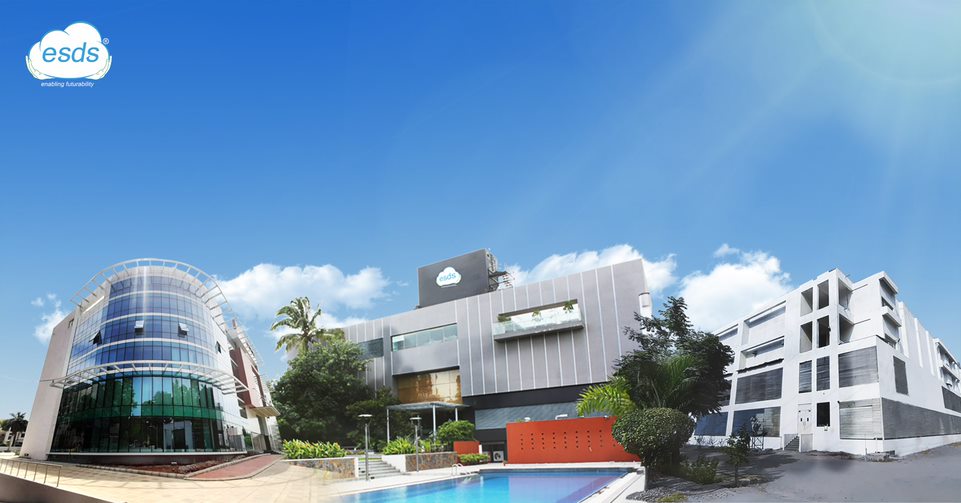
- Decoding Generative AI: A Comprehensive Guide to Gartner’s Impact Radar - January 2, 2024
- 5 Best Practices for Cloud Security in 2024 - December 29, 2023
- 10 Best Machine Learning Ops Strategies for Cloud Environments in 2024 - December 29, 2023
